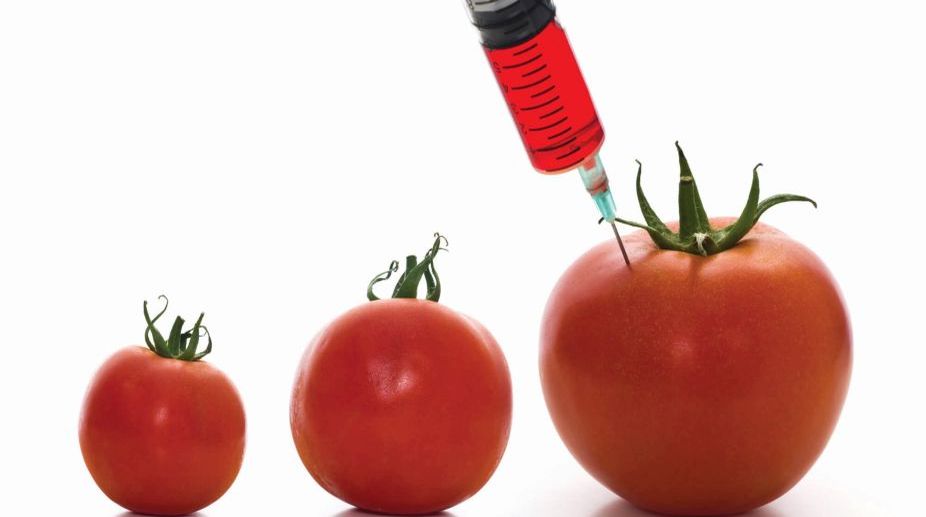Wholesale Price based inflation spikes to 3-month-high at 0.53% in March
The annual rate of inflation based on the all India Wholesale Price Index (WPI) number has risen marginally to 0.53 per cent for March 2024, the government said on Monday.
One of the most important ways to prevent or treat cancer is eating a nutrient rich diet and avoiding things that are known to aggravate its risk.

Food additives
Cancer is a systemic disease with various causes, some of which include a poor diet, toxin exposure, nutrient deficiencies and to some extent, genetics. One of the most important ways to prevent or treat it is by eating a nutrient-rich diet and avoiding things that are known to increase cancer risk.
Foods that increase the risk of cancer are

Pesticides and herbicides: Industrial farming practices have filled the environment with noxious chemicals. The best way to avoid consuming pesticides is to buy organic and locally-grown foods.
Advertisement

Added sugar and artificial sweeteners: Recently, studies have linked higher sugar diets to increased risk for certain types of cancer. Artificial sweeteners like aspartame, saccharine and sucralose may generate damaging free radicals in the body.
High fructose corn syrup, is highly processed, artificial and capable of contributing to obesity and yeast growth, among other negative health effects.

Food additives: Nitrates, sulphites, food dyes and colouring have all been linked to free radical damage in the body. The best way to avoid these is to stay away from products that contain unknown and unpronounceable ingredients.
Cancer-fighting food

Leafy green vegetables: They are the cornerstone of any healthy diet since they’re exceptionally rich in vitamins, minerals, antioxidants and enzymes, yet very low in calories, fats, sodium and other toxins. Leafy greens of all kinds like nutritious spinach, kale, collard greens, romaine, arugula salad, watercress, etc, are rich in antioxidants known to combat cancer, including vitamin C and beta-carotene.
They also contain antibacterial and antiviral properties, inactivate carcinogens, help reprogram cancer cells to die off, and prevent tumour formation and metastasis. Adding a handful of leafy greens to lunch and dinner helps to increase nutrient intake.
To make obtaining them simpler, one can try juicing vegetables for near perfect health. Vegetable juices are very easy to digest and can be easily made at home.

Cruciferous vegetables: These are known to be powerful cancer killers and some of the best vitamin C foods widely available. Many are rich in glutathione, known as the body’s “master antioxidant” since it has high free-radical- scavenging abilities.
Add one or two kinds – including broccoli, cauliflower, cabbage or Brussels sprouts -to three mostly plant-based meals daily in the form of roasted veggies, soups or stir fries, or dip them into hummus or Greek yogurt for a healthy, fast snack. Additionally, many other vegetables are beneficial for lowering cancer risk, including onions, zucchini, asparagus, artichokes, peppers, carrots and beets.

Berries: Berries are available in various forms throughout the world. Blueberries, raspberries, cherries, strawberries, and blackberries are easy to find and use in numerous types of recipes – which is good news considering they supply vitamin C, vitamin A and Gallic acid, a powerful antifungal/antiviral agent that increases immunity.
Berries are especially rich in proanthocyanidin antioxidants, which have been observed to have anti-aging properties in several animal studies and are capable of lowering free radical damage.

Orange-coloured fruits and veggies: Brightly coloured pigments found in plant foods are a sure sign that they’re beaming with phytochemicals, especially carotenoid antioxidants. Carotenoids are derivatives of vitamin A found in many citrus fruits, sweet potatoes, berries, pumpkin, squashes and other plant foods.
One of the most researched is beta-carotene, an essential nutrient for immune functioning, detoxification, liver health and fighting cancers of the skin, eyes and organs. When it comes to carbohydrate-rich veggies, studies show that complex carbs, including sweet potatoes, carrots, beets, other tubers and whole-grain foods, is related to a reduced risk of several types of cancer, particularly of the upper digestive tract.

Fresh herbs and spices: Turmeric, which contains the active ingredient curcumin, is one of the most powerful ingredients in an anti-cancer diet because it’s been shown to decrease tumour size and fight colon and breast cancer. Along with easy-to- use black pepper, turmeric absorption is enhanced and better able to fight inflammation.
Aim for one teaspoon of turmeric powder and 1/4 teaspoon of black pepper or more daily, which can easily be used in a tonic drink, with eggs or in a veggie stir fry.

Garlic: The World Health Organisation advises to add a clove a day to foods as it lowers the risk of colon, stomach and breast cancers.
A good and balanced diet is the first step to stay disease free and cancer is no exception. Eat healthy and thus prevent it on a large extent.
The writer is founder and chief dietician, Nmami Life
Advertisement